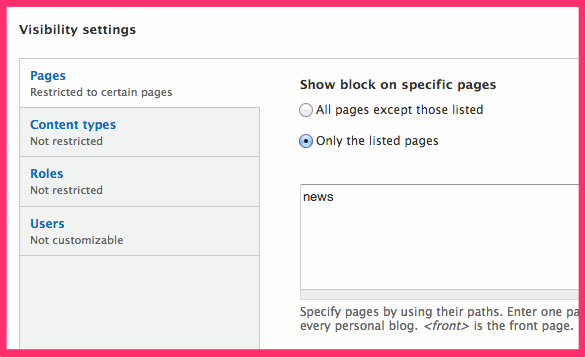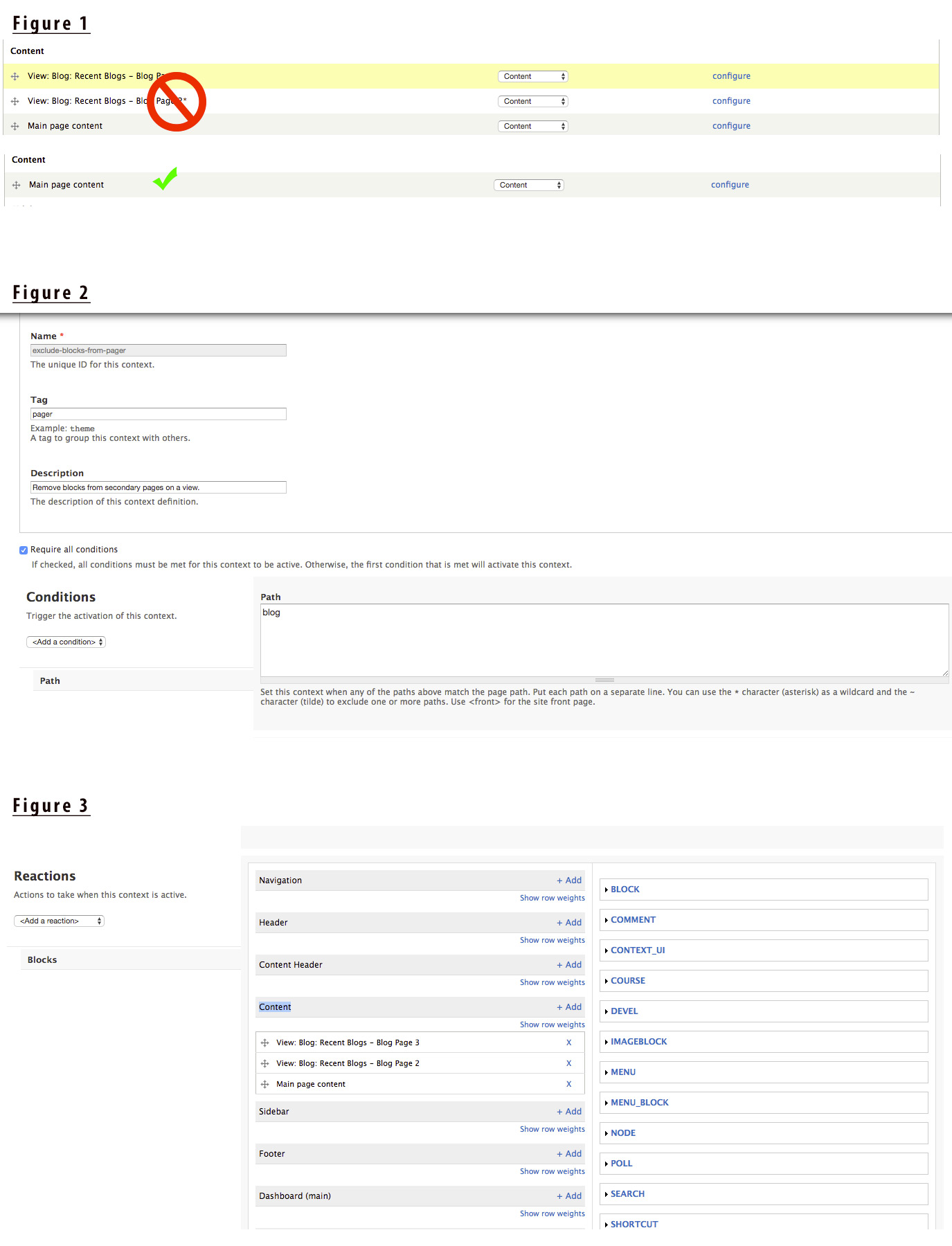Instead of using PHP code in your block visibility settings (which gets stored in your database ...), to not show the block on paginated pages (as in your question), you can also use the Rules block visibility module for this. Here is a quote from its project page:
The Rules block visibility module allows Rules components to be used to control block visibility. This provides Drupal administrators and developers extreme flexibility in controlling when blocks should be displayed on their websites, in addition to the default visibility options provided by Drupal.
The general idea is that if you can do it with Rules, you can use it to control block visibility, so the possibilities are limitless.
Need to show a block only for users registered more than a month ago?
Perhaps you have a block that must be shown only between 8am-5pm on weekdays?
What about displaying or hiding a block based on current weather conditions?
All of this can be done by using Rules block visibility.
With that, and as per the "if you can do it with Rules, you can use it to control block visibility" above, you've reduced your question to making Rules "check the path of the current page". So that the block is only shown on pages with a path that matches "news" and does NOT start with "news?page=").
For an illustration of how to use this module, refer to my answer to "How to stop a Views block from displaying to admins, such as user/1?". It includes a Rules Component (in Rules export format), which you should replace by this variation of it to make it match your specific question):
{ "rules_show_block_on_page_with_no_url_parms" : {
"LABEL" : "Show block on page with no url parms",
"PLUGIN" : "rule",
"OWNER" : "rules",
"REQUIRES" : [ "rules" ],
"USES VARIABLES" : {
"module" : { "label" : "Module", "type" : "text" },
"delta" : { "label" : "Delta", "type" : "text" },
"result" : { "label" : "Result", "type" : "boolean", "parameter" : false }
},
"IF" : [
{ "data_is" : { "data" : [ "site:current-page:url" ], "value" : "news" } },
{ "NOT text_matches" : {
"text" : [ "site:current-page:url" ],
"match" : "news?page=",
"operation" : "starts"
}
}
],
"DO" : [ { "data_set" : { "data" : [ "result" ], "value" : "1" } } ],
"PROVIDES VARIABLES" : [ "result" ]
}
}


